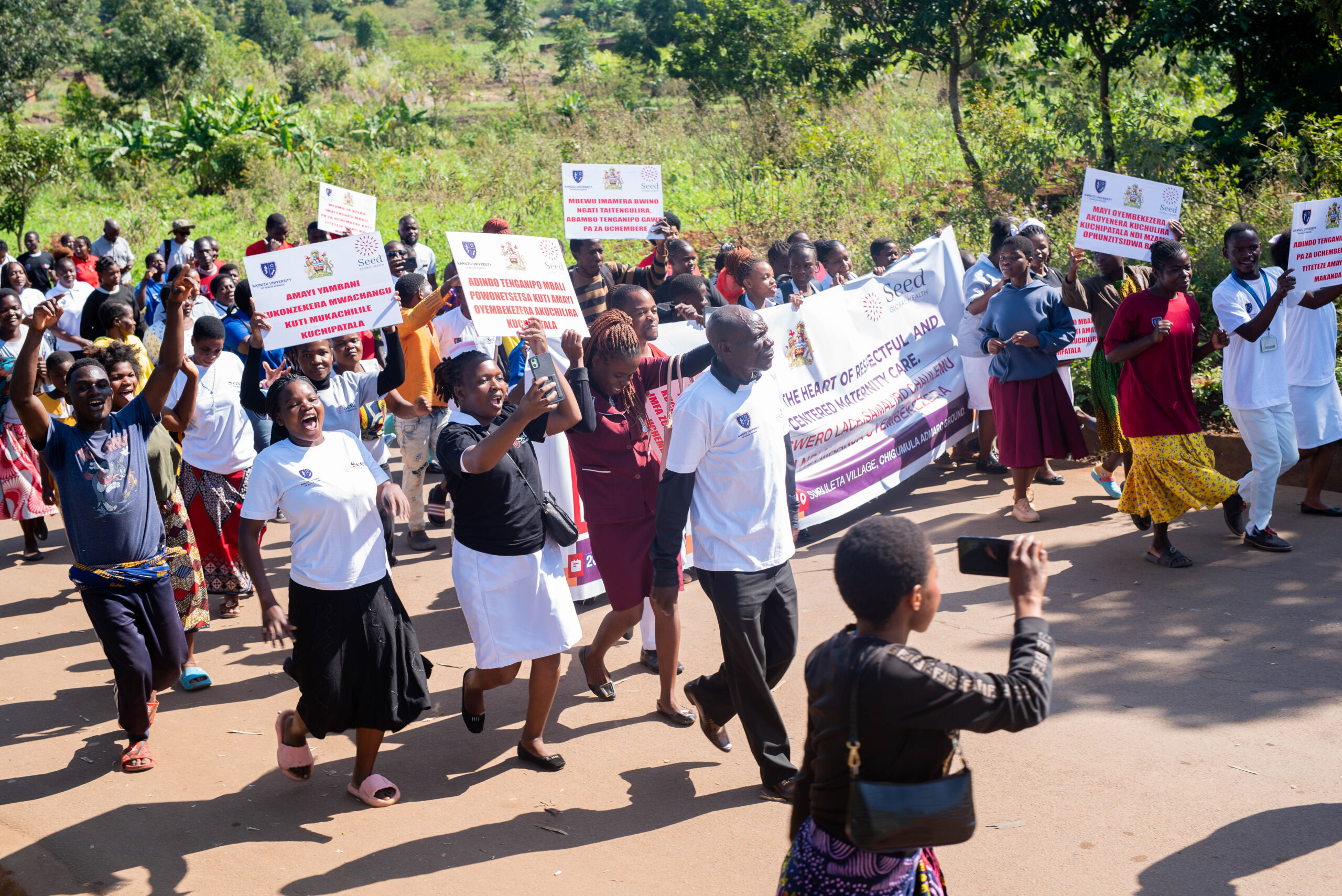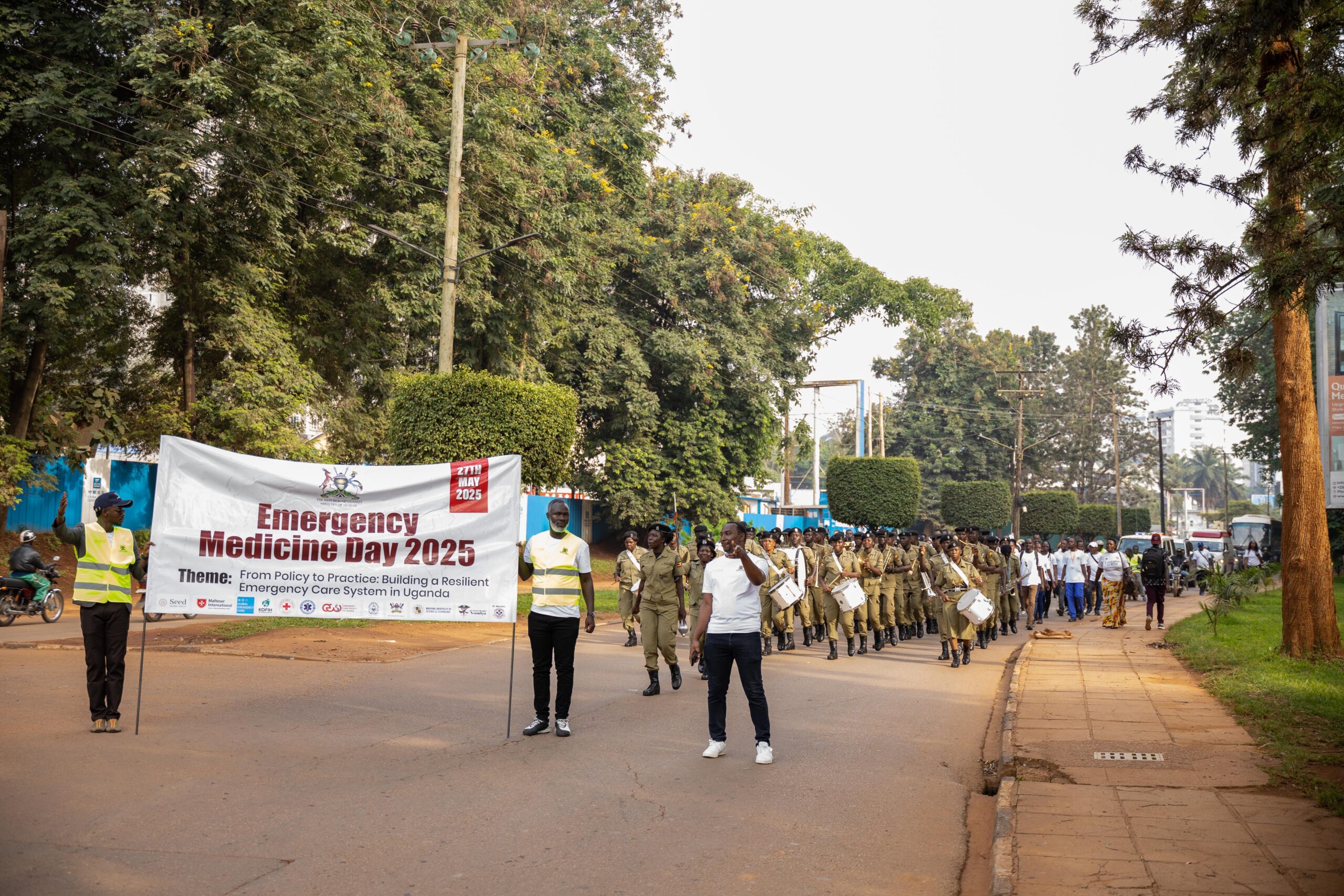Commitments Following White House Covid Summit
On September 22, 2021, Seed Global Health (Seed) was honored to participate in the White House Covid Summit hosted on the sidelines of the 76th United Nations General Assembly.
The summit brought together world leaders, the private sector, multilateral organizations, and health experts in an effort to accelerate and coordinate the response to COVID-19. We are grateful for the many prominent voices that joined in solidarity and called for urgent action to vaccinate the world and put an end to the pandemic.
The challenge now is to transform the collective good intention into a bold and concrete plan.
As President Biden challenged the world, we must all think bigger and more audaciously. We have all the tools, funding, and know-how to vaccinate the world and improve health —what has been lacking is the political will.
While many important pledges were made towards increased vaccine donation, funding for pandemic preparedness, and increasing oxygen and other supplies essential in our efforts to tackle COVID-19, there is an opportunity to commit to expansion, protection, and training of health workers more explicitly around the world.
Leveraging our experience in health workforce development and building durable partnerships with the governments of the countries where work, Seed is committed to mobilizing the investments and political will required to transform the world’s health workforce.
COVID-19 has proven the critical need for a well-trained, well-distributed, and well-resourced health workforce. They are essential to providing high-quality, equitable, and dignified care; are the backbone of resilient health systems; and are key to ending this pandemic and preventing the next one.
It is estimated that 200 health workers die a day due to COVID-19, totaling more than 115,000 through April 2021—a harsh blow to a sector already facing personnel shortages estimated to reach 18 million people by 2030.
This loss is compounded by attrition of frontline health workers due to exhaustion from the physical, emotional, and mental toll of the pandemic. Though these numbers may pale in comparison to the millions of lives COVID-19 has taken, in aggregate these worker losses are significant, representing billions of dollars in training and millions of years of education. Tragically, the immediate impact of health worker deaths is that more people, especially in communities that need it the most, will lack access to health services. In Uganda, for example, 14,000 patients miss medical care when just one doctor dies. Ultimately, these deaths represent the catastrophic impact of a persistent failure to comprehensively invest in the health workforce.
While applause abounded during the pandemic’s outset, the lack of actual investment in the health workforce reflects a persistent misunderstanding of their essential role in preventing disease and ensuring health for all. The World Bank has estimated the cumulative cost of COVID-19 to be more than $20 trillion to date. In contrast, researchers have estimated the cost to achieve necessary and overdue global benchmarks in health— including universal health care and filling the global shortages of health workers—to cost a fraction of the loss. At $400 billion, the annual investment required to close the gap is 1/50th of the cost of COVID-19 and promises dividends in health, wellbeing, development, and economic growth.
We know investing in health systems has a multiplier effect. According to the Organization for Economic Co-operation and Development and International Labor Organization, health workforce investments generate a return on investment of up to 9:1. The health and social sectors generate formal and secure jobs, almost 70% of which will be occupied by women. The employment of women achieves progress toward both gender equality and poverty alleviation, bringing families into the formal sector.
Investments in the health workforce are a tide that raises all boats.
We have an opportunity to change the status quo and truly build back stronger. World leaders, governments, funders, policymakers, and other decision-makers must urgently prioritize sustained investments in the global health workforce. Political leaders, policymakers, and economists can no longer view health employment as a net drain on domestic budgets or an expense line item solely to be controlled. Whether it’s addressing the pandemic or long-simmering crises of maternal mortality and communicable and non-communicable diseases that are killing communities globally, progress cannot be nurtured without healthcare workers.
In response to this need, Seed and a coalition of partners are launching a global campaign to spur funding and programmatic commitments to holistically (re)build the health workforce—a central requirement for stronger health systems, health security, and resilience as well as the path to achieving health for all and ultimately better and more inclusive societies. Fundamentally, we call upon stakeholders to commit to a cohesive vision for supporting the global health workforce: long-term financial and technical support for comprehensive, country-led health workforce planning, programming, and capacity building.
As the President noted, “This is within our capacity. We know what needs to be done. We just have to make the choice to do it.” At Seed, the challenge of COVID-19 has been laid before us; it is one that we are willing to accept and one we are unwilling to postpone. We choose action and welcome partners and collaborators to join us.
Seed Global Health commitments:
- Committed to rebuilding the global health workforce through large-scale national training programs that can put shots in arms, deliver quality care, protect essential services, and create resilience.
- Committed to creating a movement in which every government prioritizes health system investments as the rising tide that lifts all boats—supporting better health, vaccine delivery, economic stability, gender equity, social inclusion, community, national and global security.
- Committed to convening global stakeholders and health experts to develop measurable health workforce targets that are required for vaccinating the world and building back stronger. This bold approach will include establishing large-scale financing objectives; lengthening timelines for measuring progress towards health system resilience; prioritizing country-led health workforce planning, programming, and capacity building; protecting health workers today and tomorrow; recognizing and including the often-marginalized voices of women and community health workers.

